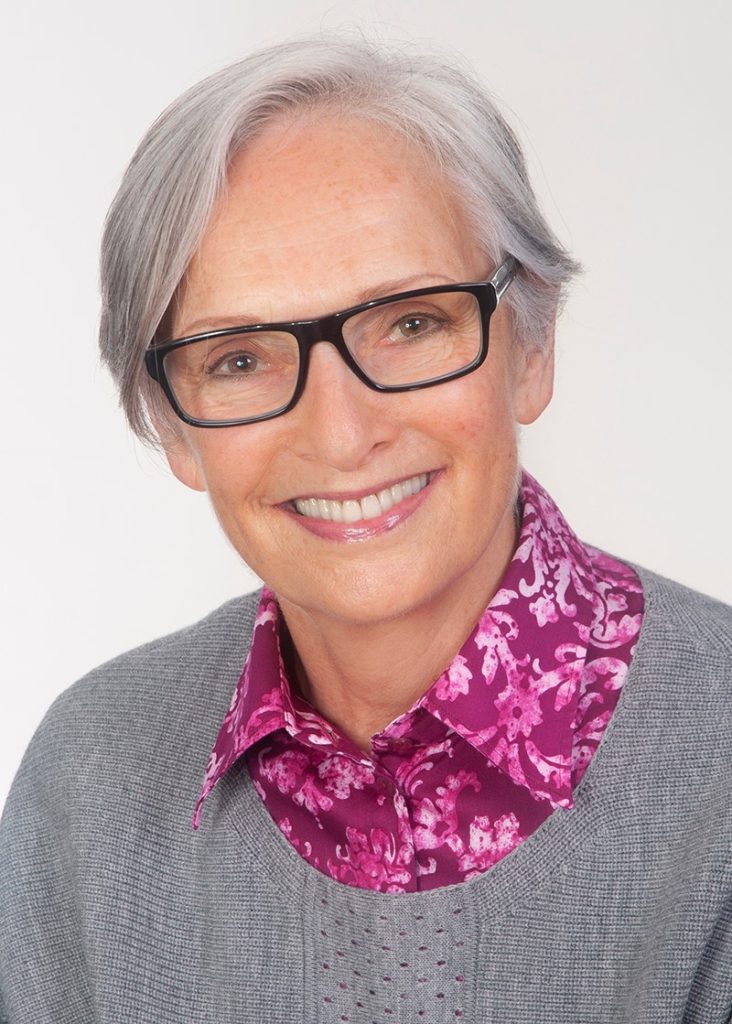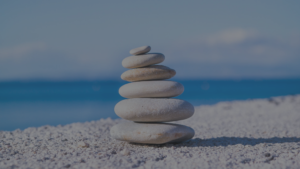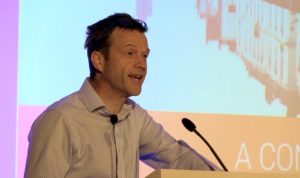
Claudia Nielsen is a psychotherapist and meditator working in London. Today Laurence Freeman invites her to speak to us about the psychological aspects of the crisis that we are passing through and learning from – and how this crisis throws light upon our mental and spiritual health in general.
Watch Claudia’s first talk
Watch Claudia’s second talk
Claudia’s first interview’s insights
Laurence: You’ve entered a healing profession and for many years have dealt with the challenges of people’s journey through life. What was it that motivated you to take up this healing work first of all?
I’m very pleased to be here talking to you at this time. A time that’s going to be unforgettable for most of us. Well, what took me to this profession is my interest in consciousness. The way I see it is that we are all a spark of the divine, the divine being the highest consciousness. So it was my interest in what it means to be a human being other than myself, other sparks, that took me to study and become a psychotherapist. I find that it is one of the most, if not the most privileged profession there is, because it’s an enormous privilege to share with people their deepest thoughts, fears, the deepest issues.
What would you say would be the biggest impact that you’ve felt so far through this crisis that has touched people’s minds and hearts most?
I think the thing that has most impacted me in terms of what is going on for people at the moment is the lack of control. I think you know we all like to have control as much as possible and we have now, at least in most Western countries, have been forced into seclusion, into isolation and, to a great extent, we have lost the control of our normal lives and we are forced in fact to find new ways.
I think it’s enormously interesting what’s happening at the moment because previously, until a few months ago, most of the people in the West have been focusing their attention on the external life, on what’s going on outside.
All of a sudden, virtually overnight, we have been forced into our inner landscape. It seems to me that, as every crisis, it brings an opportunity, and this is an enormous opportunity for a lot of people to actually go inside and become friends with themselves which is something that is quite tricky for some people. This can bring also about an enormous amount of anxiety because quite a lot of the certainties in life have gone for the moment.
The fact that death is actually so much closer to us than it was, even a few months ago. We have to take our personal mortality seriously, and the mortality of people around us and that is a very destabilizing element. So managing the anxiety may for some people create big problems and you know how people deal with that is the range of options from big distractions, television and Netflix, and gambling, and all kinds of things. All the way to meditating and becoming more centered. It will be very interesting to see what will happen once the crisis is over.
Why is it we want to be in control? Why is it so necessary for us to be in control and what happens when suddenly we find that we’re not?
Well, I think we like to be in control because then we can make choices. That is so important in our lives: to live according to our decisions rather than somebody else’s decisions. To me this is one of the most important aspects of a successful life: it is to have a sense of that which we can control and that which we cannot control.
I think we like to be in control because then we can make choices.
There is this fabulous Medieval prayer ‘We cannot direct the wind, but we can adjust the sails’.
I thought this is such an important truth. There are the big things we cannot control but what we can control is how we respond to it and this is so much what’s happening at the moment. We cannot control the enormity of what is happening out there. I certainly cannot understand the enormity of what’s happening. We cannot control that but what we can control in every situation is how we respond to it and this is really the biggest learning.
When we realize that we don’t have the control we imagine we have or would like to have that the first feeling we have is fear? Where do we feel fear?
It’s in the body we feel fear and it’s normally around the center of the body. When we out of control, anxiety is fear, it’s a form of fear and it is certainly a response to feeling out of control. Eating disorders, where the control of eating means is so pronounced, is known to be a feeling of lack of control in other parts of life. So fear is very much a response to it and this is what is so important. In situations as we are living at the moment it is important to find a way of empowering ourselves and by empowering ourselves I mean to be able to make choices and to make decisions because as I think this is an enormously important aspect of successful living, a fulfilled living. This idea that I can make choices and I can make decisions so therefore evaluating the situation and responding to it in an appropriate way whatever that may mean but consciously doing it here’s a choice.
Laurence: Many people hearing you will perhaps say that’s exactly what I’m feeling. I’ve lost control of my ordinary life. I don’t know whether I’m going to be told to stay in indoors or be subject to all these external restrictions. I don’t know for how long…So there’s that feeling of loss of control and then the fear that comes with that. And perhaps many people are saying well what can I do? It’s easy to say I should then learn to make decisions but how do I get to that place of empowerment that you’re talking about?
Where would you recommend people to look in themselves for that empowerment and in particular in terms of meditation? How would you advise people feeling this fear to come to this empowerment?
Well, first of all I think that in a situation which we are finding ourselves now, it’s important to have a routine, terribly important to have a routine. So that is a decision, that is an empowering decision to have a routine to get up at a certain time, to have a plan.
Meditation is very much part of this plan because it is the one moment in which we can let go, that empowering decision of sitting down, centred, relaxing the body. Letting go of everything, of tensions, of thoughts, of concerns, of fears. Keeping the awareness, the attention. Meditation is one of the amazing gifts that brings you into the present.
Meditation is one of the amazing gifts that brings you into the present.
Being able to connect. I mean meditation is very much to me a connection with the divine, a connection with everything else and this is a tremendous gift I think at this time.
How would you advise people to say to learn to meditate or learn again to meditate under these stressful conditions?
For some people turning inside can be very distressing because they may have stored so much anger, so much fear from way back. Those fears are still there and this is one of the reasons why a lot of people prefer not to turn inside, a lot of people keep their attention on the outside world in order not to look internally. And this is one of the challenges of psychotherapy: you can go through very challenging moments when people look inside internally so I wouldn’t say that for everybody looking internally is going to be wonderful.
But going back to your question, I think at any time is a good time to start meditating. That’s the short answer.
I am no expert. I only know meditation that I’ve been doing for 45 years. In the therapeutic encounter I very often tell people to go and meditate, it’s one of my standard advice. My standard suggestion is that people should meditate. It’s very easy to say well I can’t do it. I don’t know how to do it and I can’t stop my mind, my mind is too busy. Perhaps it’s the time in which people can be more persistent. That is also a choice.
Laurence: I think that’s very helpful for especially people who are facing the anxieties that come up through this time and also recognizing that could be an opportunity here to learn what they wanted to learn and to feel empowered rather than frightened by the situation and your encouragement for people to not be frightened to start to meditate.
I’d like to come back to to that question in particular: what you would maybe describe to people they might discover if they start learning to meditate in this new routine of lights that they’ve set themselves.
We will do that in the next conversation. Thank you!


